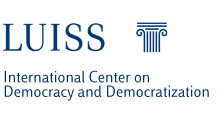Economic crises and democratic quality in Europe
Economic Crises and Democratic Quality in Europe is ICEDD section devoted to investigate causal mechanisms, to collect and analyze qualitative and quantitative data, meta analyze international dataset, and to develop further innovative explaining and comprehensive framework on quality of democracy as it results from the interaction of the transformations undergone by democratic institutions per se and the policies adopted to tackle the economic crises of 2007 and 2008. A considerable part of the human and material resources have been put on the comparative analysis of the domestic systems as well as to the evolution of the European approaches to the crises and later on to the austerity. In many ways, this section interacts with other research streams that are at the core of ICEDD agenda, such as the quality of democracy in other regional areas (notably Latin Americas and Asia) and the democratic innovations. Researchers and experts involved into the research and dissemination activities led by this section engage into an empirical exercise sharing as a common horizon a multidimensional notion of democratic quality and a compound methodology in their operational analysis of the phenomena considered therein. Today the section is interested to expand the focus toward the new challenges that are hitting democratic institutions, notably migration and digital transformations, and toward the interplay these new challenges make with the legacies left behind by the austerity strategies and the policies adopted during the post crisis period. Key topics addressed are: the balance between the new forms of representations and the traditional models of democracy; the paradoxes featured by the equality/freedom dimensions and the demands citizens address to democratic institutions; the restructuring of the competition within the political arenas and in between the transnational and the national levels of governance; the reshape of balance between oversighting institutions and electorally legitimated institutions.


